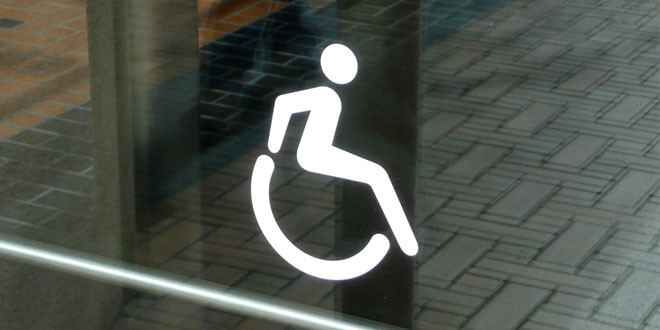Think of the global spending power! There are millions of people worldwide who have disabilities. They are shopping, traveling, dining out, and applying for jobs.
Be professionally ready to receive this large and important segment of your guest, client and vendor population. These are guidelines that you will use successfully throughout your career.
Welcoming
- You may have to ask your guest if he or she would like to shake hands. Use your judgment.
- People with limited hand use or who wear an artificial limb can usually shake hands. Shaking hands with the left hand is acceptable
- A smile and a warm greeting are always correct
- Speak directly to your guest, not to the person accompanying him or her.
- Review accessibility prior to the visit. Restrooms, computers, and drinking fountains should be accessible
- Consider weather conditions if you are escorting your guest around your property.
- Review alternatives such as a bottle of water and a drinking glass on your desk.
General Conversation
- Use your normal tone of voice
- Never pretend to understand. Ask the person to repeat a phrase.
- Use written notes when necessary, your guest will appreciate the clarity.
- Offer a pen and pad if appropriate.
Guests Using Wheelchairs
- Try to put yourself at eye level with the guest. Kneel or sit.
- Carefully consider a suitable meeting place.
- Never touch the chair unless asked. This is your guest’s personal space.
- Walkers/canes. Never move them. Ask permission first.
Be Patient With Both Your Guest & Yourself
- Remember that anyone can make a mistake. Just relax. Offer an apology if you forget some courtesy.
- Allow more time for this meeting than you would generally.
Excerpts of blog taken from the book: Hospitality Management – People Skills & Manners on and off the Job.
Copyright © 2015 Lyn Pont, PhD




